Claire Diaz is a sexologist and relationship coach who challenges the silence and stigma surrounding sexuality. Her work blends sexology, psychotherapy, and somatic practices to create spaces where people can explore intimacy with curiosity, joy, and self-acceptance. Through one-on-one coaching, group workshops, and her playful live event, The Sweet Spot, she helps people reconnect with their bodies and dismantle the shame that keeps desire hidden.
From weaving dance and yoga into her practice to guiding clients toward deeper embodied connection, her approach is holistic and refreshingly human. For Claire, sexuality isn’t just an act; it’s a lifelong practice of empowerment, authenticity, and liberation.
We sat down with her to talk about the journey that led her here, why embodiment matters in intimacy, and how breaking taboos can open the door to more fulfilling relationships.
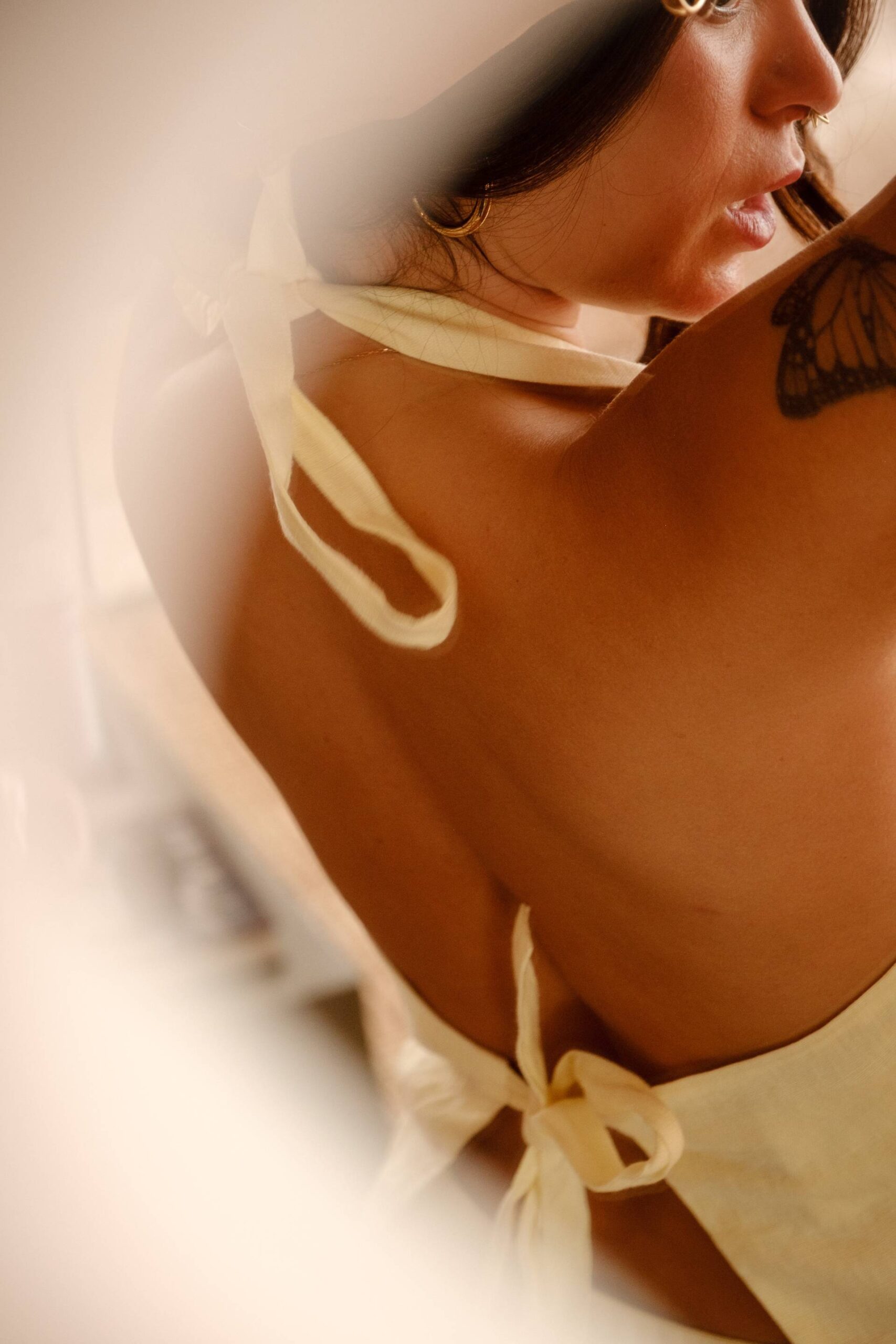
Website
The “Aha” Moment
Claire, your bio mentions a journey that began with a lack of sex education. Can you share a specific “aha” moment from your own early explorations of sexuality and wellness that fundamentally shifted your perspective and set you on this path?
Claire: I think my AHA moment was more of an “ahhh…ha…?” that spread over several years. It happened gradually as I exited my late teen years—when I was, like many, thrown into the exciting and equally terrifying world of dating as an ‘adult.’
I found myself having odd and awkward sexual experiences one after the next (learning on the job, you could say)—and no one was really talking about sex. And I was never taught anything remotely useful from my school sex ed that was going to help me. I grew an intense curiosity, which I fed with any sex education podcasts or books I could get my hands on. At the time, there were very few sexologists around, as I see today. However, I came across one of my early inspirations, Juliette Allen, who not only spoke so openly about sex but also brought so much intention and PLEASURE into the concept. I realized that’s what was missing in my education.
“Sex for… pleasure? Wait, I can decide what I like… and I can ask for it?”
The young 20-something-year-old me was mind-blown. I began speaking to all my friends about everything I was learning, at any opportunity I got. We had a running joke (accompanied by a glass or two of wine) that I would pretend to podcast interview them about their sexual experiences and give them advice… Until one day, someone turned around and said, ‘Claire, I don’t think you’re meant to be in law school…’ This needs to be your career.
So many years later—here we are, on a path to continue deepening into the possibilities of pleasure and sex—and hoping to share that with the world.

All photographs courtesy of Sophie Spencer
The Role of Erotica
Do you see erotic media, books, or fantasy as helpful tools for personal growth and exploration, or do they sometimes complicate our sexual self-image?
Claire: Erotica is a fantastic tool for exploration—it can ignite curiosity, creativity, and a sense of play in your sex life (whether that’s solo or partnered). It can also help increase desire because you are consuming material that turns you on. I often suggest this to clients who are experiencing some stagnancy in their sex life—sometimes we need some inspiration!
Like everything in life, moderation and street smarts are key. Some erotic material out there, like most mainstream pornography, is extremely harmful and unethical, and it’s easy to become highly dependent on it to become aroused. Pornography is produced most often by and for the male gaze and is made for entertainment. We aren’t seeing real sexual encounters in porn sex with consent, awkwardness, slowness, natural bodies, etc. Erotica like this can be really damaging to our sense of worth, and our view of sex can become warped.
Some experts are entirely against the use of porn.- I personally still believe that, done in moderation, and finding ethical sites to stream from, it is a source of learning and enjoyment. However, I would lean towards other forms of erotica, such as erotic novels/smut or erotic audio, as these are generally slower paced and encourage your own creativity in the scene.
Growth vs. Repair
Some people see seeking help with intimacy as a sign of “something being wrong”. How do you reframe coaching and sexology as tools for growth rather than repair?
Claire: This is so huge. Sex is still shrouded in a lot of shame and taboo – People really aren’t talking about it enough! So when something isn’t feeling right or is just not working, it can sometimes be hard to admit. I think people are walking around thinking that everyone else is fine and having great sex—but behind closed doors, it’s just not true. This stuff is so beautifully complicated, individual, and nuanced! In my eyes, there is nothing stronger (and honestly, more sexy) than reaching out for support – because it means you have the self-awareness to identify something is off, and you are willing to work on it. It’s not about being weak or broken—it’s about learning new tools and new ways of communicating or thinking that will liberate you.
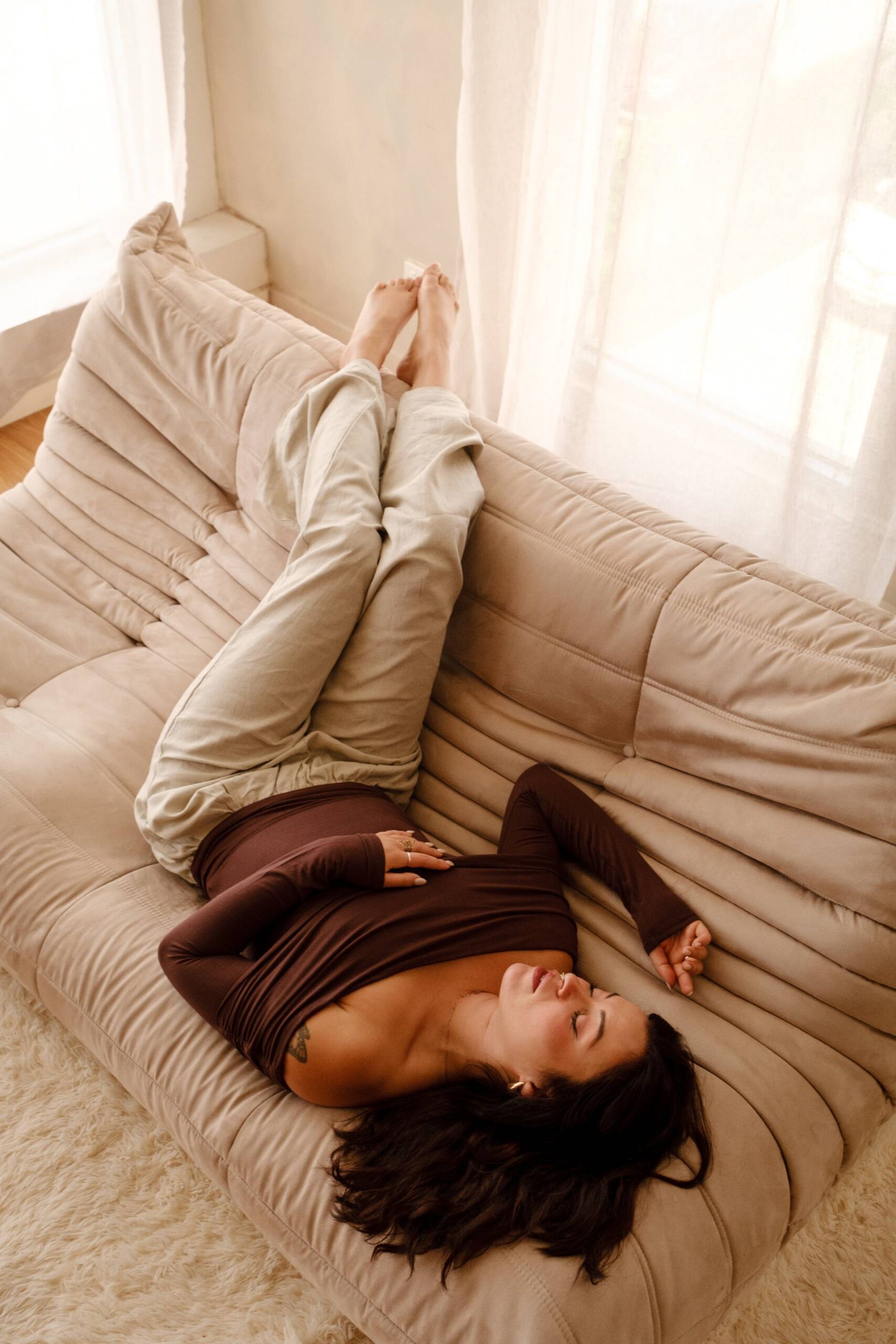
Rewriting Sex Education
If you could rewrite the sex education curriculum for young adults today, what key lessons or practices would you insist on including?
Claire:I am buzzing at this question. I just imagine how different the world would be if we had thorough, shame-free, inclusive sex ed… and I sigh with euphoria!
My non-negotiable topics would be LGBTQIA+ inclusivity, enthusiastic consent, safe sexting, inclusive body image talks, comprehensive anatomy (yes, let’s teach everyone about the clitoris, please), and pornography literacy (understanding the dangers of it and how to consume it mindfully).
I also think it is so important to encourage the concept of ‘what do I like?’ (i.e., teaching pleasure!)—as it is the cornerstone for truly understanding consent and bodily autonomy.
Sex education in schools will always be a tense space to create change, understandably, to protect children and teens, but I wonder if this fear is causing ignorance of a rapidly growing issue of sexual violence and unwanted sexual experiences for youth. Not to mention the difficulties young adults then face, not having in-depth knowledge to navigate healthy relationships and intimacy.
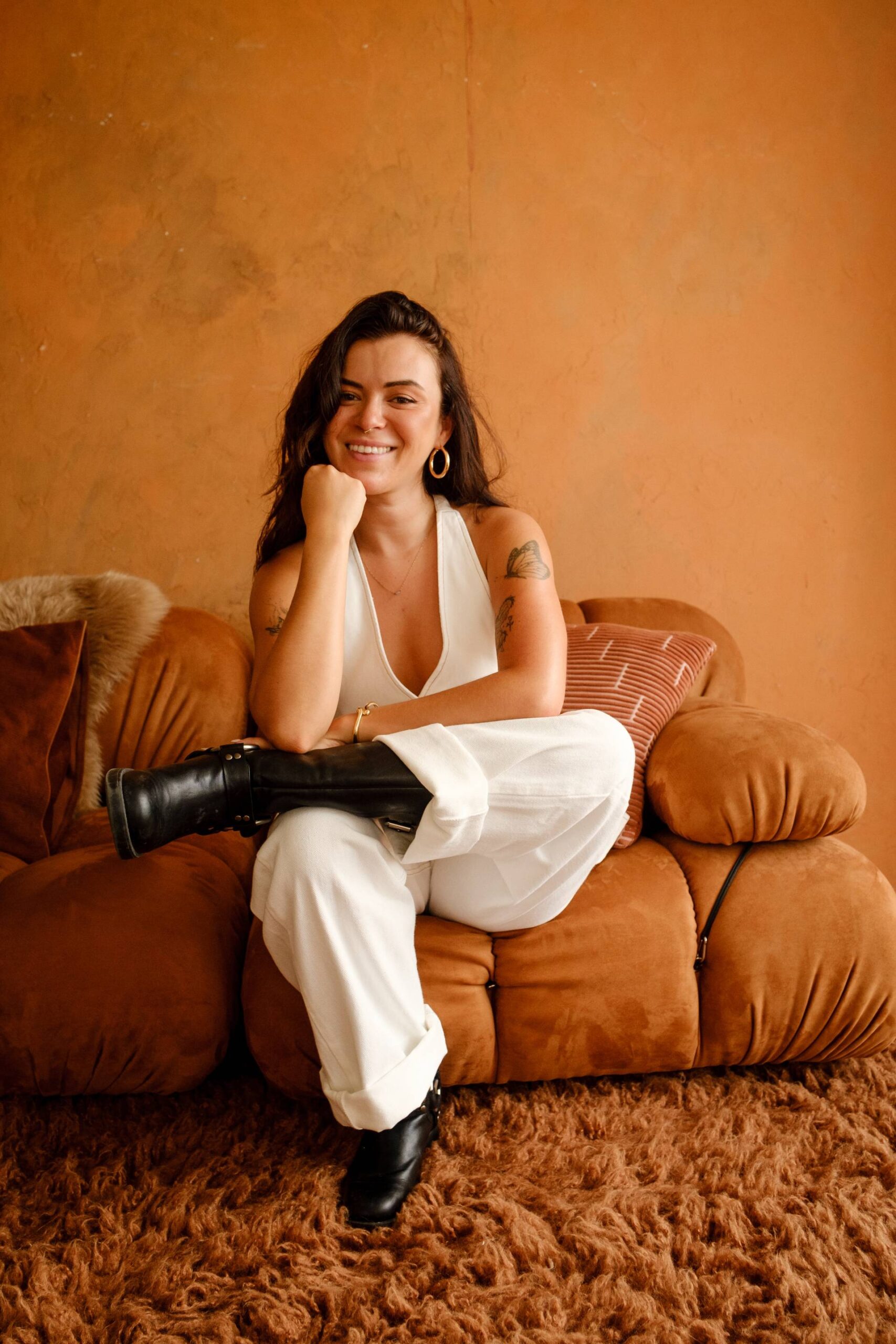
The Connection Between Sexual Wellness and Overall Health
Wellness is a huge part of modern life. In your view, how is sexual wellness intertwined with overall mental and physical wellness, and why is it essential to treat it as an integrated part of a healthy lifestyle?
Claire: Sexual wellness and overall well-being are deeply interconnected—one always feeds the other. When we’re thriving sexually, it flows into our mental and physical health. And when our mental or physical health is strong, it supports our sexual wellbeing in return.
An example? Orgasms release endorphins, oxytocin, and all those delicious feel-good chemicals that reduce stress, boost mood and energy, and even improve sleep. Feeling sexually fulfilled often shows up as more confidence, better communication in relationships, more creativity, and can even influence how much money we earn! On the other hand, when we’re anxious, burnt out, or disconnected from our bodies, it’s so common for our libido to dip, for intimacy to feel harder, or us to experience more self-criticism.
Whenever a client presents a sexual concern, I will always ask about their mental and physical wellness first. Poor routine? Too much coffee? No movement? Experiencing deep grief? Overly stressed? … These factors directly (and greatly!) impact our sex lives.
Sex isn’t separate from health and wellbeing , it is very much a part of it.

Taboo & Liberation
Many of us carry secret desires we hesitate to share out of fear of judgment. Has there ever been a “taboo” or unconventional aspect of your sexuality that, once embraced, brought you freedom or a deeper connection?
Claire: In a way, I feel like at every stage of my sexual journey, there was something that once felt like a scary taboo until it was shared openly, and that fear around it melted away.
Some key moments for me would have been expressing my desire to be with a woman—with my own deeply ingrained homophobia, I was so avoidant of the matter that it took me meeting the right group of (very gay!) friends to feel supported in my desires. I am very proudly bisexual now, and it has opened up an entire new world of sex for me.
Another example that I come across a lot with partners is anal play! Initially, I felt a lot of shame in this desire—until I realized that MOST partners I came across also carried this deep shame around butt play. Particularly for cis straight men, there is a lot of fear of what it means to their sexuality and ‘gendered role.’ It felt strange for me to ask for something that was very intimate and personal (and potentially messy!)—but talking about it just dissolved all of that.
Whether it’s butt-play or sharing a sexual fantasy or kink, opening communication about this may feel very vulnerable, but with the right people, you will find liberation on the other side.
Expanding the Meaning of Pleasure
Let’s talk about pleasure. It’s not just physical. In your work, how do you guide people to expand their understanding of pleasure to include emotional, mental, and even spiritual dimensions within their intimate lives?
Claire:I love talking about pleasure—particularly this concept of expanding pleasure beyond just sex and beginning to see pleasure in life around us. It’s in every sensation and every space if we choose to notice it: the morning dew on grass, warm sunlight on skin, the sound of friends laughing across a dinner table… I think once we broaden our view of pleasure, it also increases our capacity for it. Almost like a gratitude practice—starting to take note of all the pleasures that exist around us, and it fundamentally changes the way we think! One of the greatest practices for doing this is cultivating presence and embodiment (truly being IN your body). You can try it right now. Stop for a moment, take a deep belly breath, and just notice what sensations your body is experiencing. Pleasure is a practice that can be learned and built upon—which is awesome! Because it means everyone has the ability to expand in it.
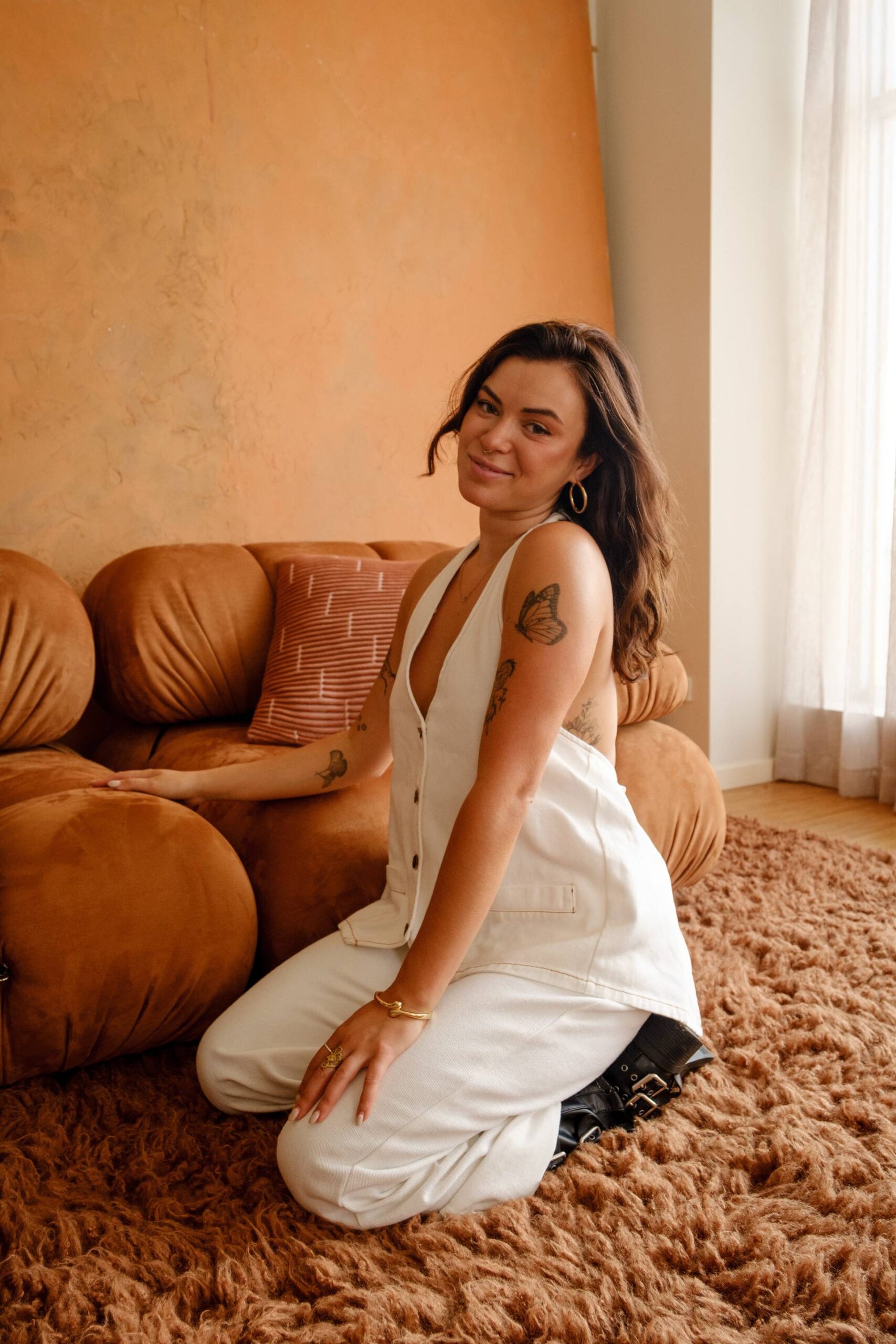
Curiosity & Conversations at The Sweet Spot
You host “The Sweet Spot”, a fun and educational event. What’s the most common question or topic that comes up during these events that highlights where people’s curiosity and need for information are most active?
Claire: I have been met with so much variety in curiosity from the crowd, but I would say a common thread is people asking about ‘re-igniting the spark’ in a long-term relationship. This makes sense to me because almost all relationships will inevitably experience this phase as the novelty and newness eventually fade. And more often than not, we get a bit lazy! Without awareness or tools, it can have a huge and lasting impact on intimacy. There’s a lot to it, but the main message would be to prioritise intimacy- not sex, but things that make you feel close. Hold hands, 6-second kisses, no phones, date nights, question cards, sleep naked- all these tiny acts of intimacy that build up over time to bring you closer.
Another common one is how to introduce new things with a partner. I think a lot of people are becoming more interested in fantasy, kinks, toys, etc.- and sometimes it can be challenging if there’s fear around a partner not accepting that! To that I would say, COMMUNICATION is everything. Be honest about this interest you have, without imposing on them or pressuring them, and see what their thoughts are. Ask them to share their fantasies/desires. Open a conversation about ways you both feel comfortable exploring together.

Redefining the Rules of Love & Sex
If you had the power to rewrite one cultural or societal “rule” about love, sex, or relationships, what would you change, and how do you believe that shift could help people live more fulfilled and authentic lives?
Claire: I would relish in abolishing all the narratives we hold around ‘sexual scripts’- where we are made to believe that we must fit perfectly packaged into a particular identity in sex. The mainstream is still feeding us a very heterosexual, monogamous, penetrative, male-pleasure-focused idea of sex- And it can easily dictate the way we act, sound, look, speak, and explore sex.
IT’S SO OUTDATED, and so restrictive. I think getting rid of labels and “shoulds” would liberate people by allowing them to ask themselves, “What do I really want? What truly brings me joy and pleasure?
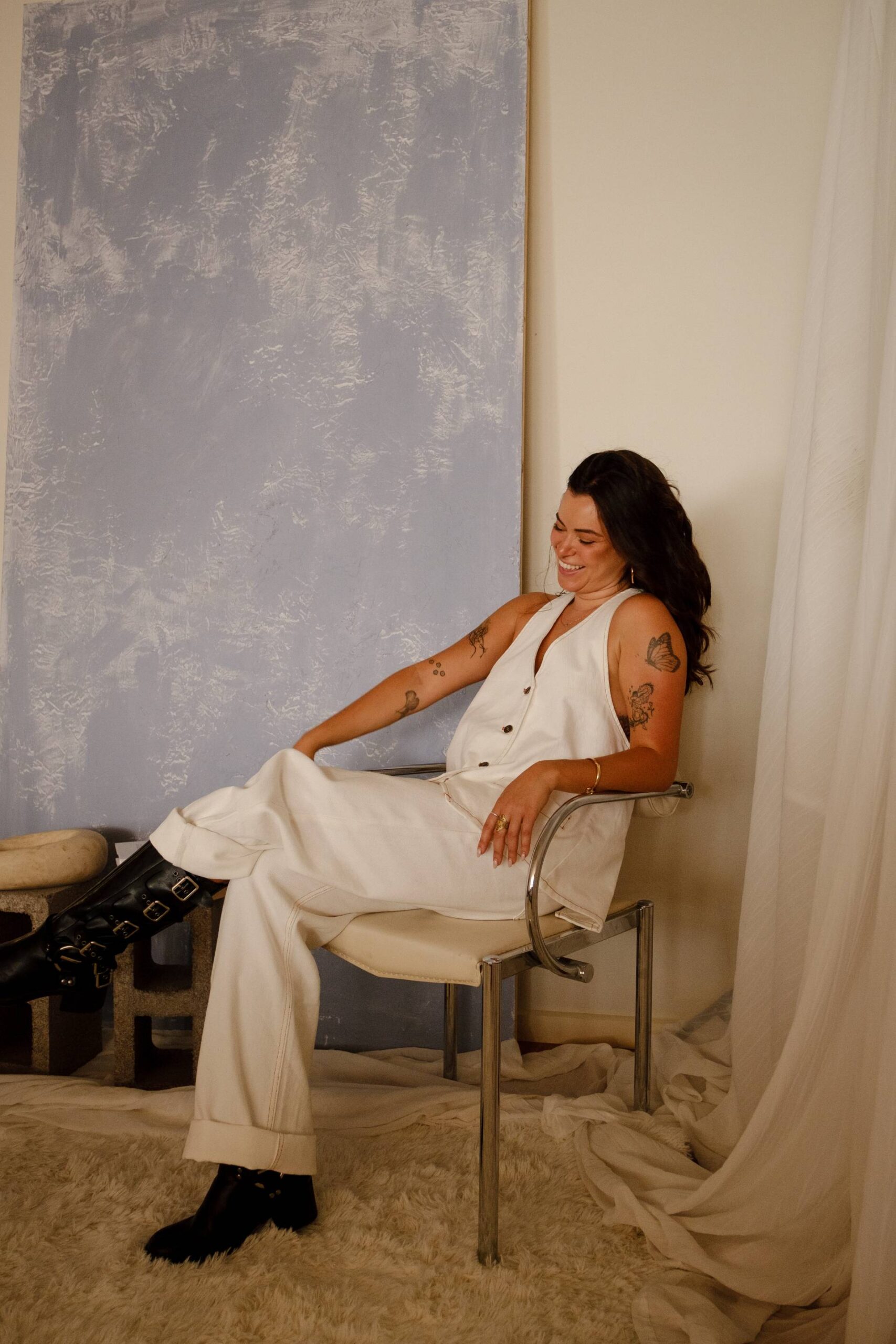
Editor’s Note
In a world that often teaches us to keep our desires hidden, Claire Diaz is a breath of fresh air. A sexologist and relationship coach, she’s on a mission to dismantle the shame and silence that have long surrounded sexuality. Through her blend of sexology, psychotherapy, and somatic practices, she guides people to explore intimacy with curiosity, joy, and profound self-acceptance. They offer 1:1 sexology sessions and run regular workshops and events, which people can find on their socials. Her work is a powerful reminder that our most intimate connections with ourselves and with others are not just acts but a lifelong practice of empowerment and liberation. In this candid interview, she offers a fresh perspective on everything from ethical erotica to rewriting outdated sexual scripts
She said that with the right people, you’re not just sharing a desire, you’re unlocking a new level of freedom.

